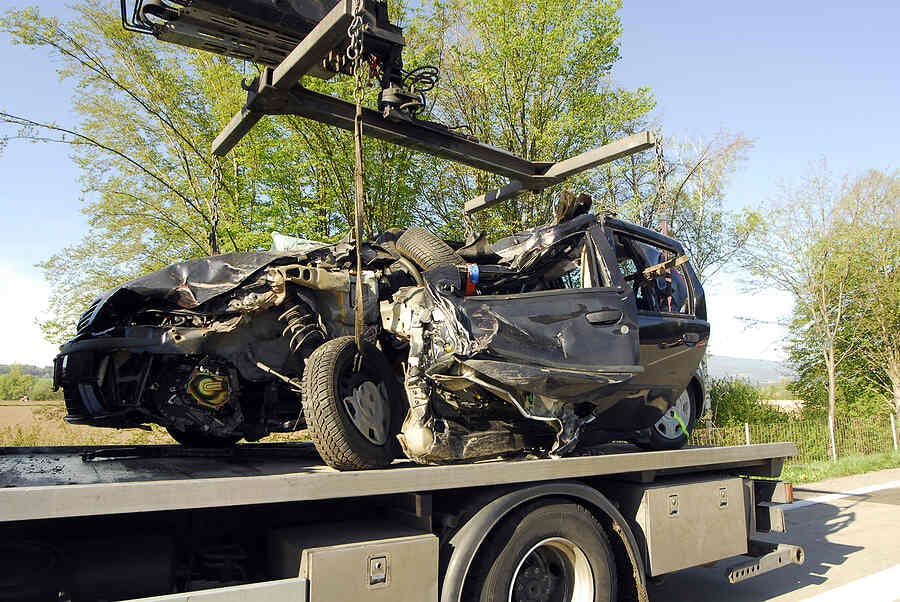Get a Free Consultation
2 minute response
24 hours a day, 7 Days a Week
Dedicated Trust Guss Intake Team
Any car accident will ruin your day, but it’s especially frustrating when your auto insurance company makes the days and weeks that follow even worse by giving you the runaround on what it will pay for repairs or a replacement. In Texas, insurance companies sometimes try to pay less than you deserve by taking advantage of the Lone Star State’s total loss statute for wrecked automobiles. With the help of a skilled car accident lawyer, you can prevent them from getting away with it.
We Win or You Pay Nothing
We have staff standing by at all hours to help you.
Immediate Medical Care
Receive the treatment you need, as soon as you need it, with usually no out-of-pocket cost to you.
24/7 Access to Us
Speak with a real human being, no matter what time it is.
Client Satisfaction
Enjoy working alongside a firm with a sterling reputation for 1,400+ 5-Star Google Reviews.


If someone tells you they totaled their car, you probably picture a car that’s completely destroyed and undrivable. Crumpled front-end, caved-in roof, bent frame, that sort of thing. Basically, to most people, a totaled car is destined for the junkyard. But that’s not how insurance companies see it. To insurance companies, totaled (or total loss) doesn’t necessarily mean “damaged beyond all repair.” Instead, it means, “not worth repairing, based on our estimate of what the car was worth before it crashed.” To put it another way, insurance companies use “totaled” to justify paying you less than you deserve for the damage to your car.
Most states, including Texas, have laws on the books that require special titles for damaged vehicles. The purpose of these statutes is to protect purchasers of used vehicles by giving them notice, on the face of the vehicle title, that the vehicle has previously sustained damage in crashes, floods, or other damaging incidents. The Texas Transportation Code defines two levels of vehicle damage requiring a special title:
Texas auto insurance companies use the statutory definition of salvage motor vehicle as their benchmark for determining when a vehicle is a total loss. If the cost of repairing a car damaged in a crash exceeds 100% of its market value immediately before the crash, then the insurance company can deem it a total loss under the driver’s insurance policy and decline to repair it. Instead, the driver surrenders the damaged car to the insurance company, which pays the driver a settlement that, in theory, equals the pre-crash market value of the totaled car and enables the driver to buy a comparable vehicle. Theory, however, does not always translate into practice. The problem with insurance companies using repair costs and pre-crash market values as benchmarks for deciding how much money to pay a car owner is that those amounts aren’t exactly set in stone. They vary, they’re subjective, and if you’re not careful, an insurance company can try to manipulate them to its advantage, resulting in your financial loss. Here are two examples of what can happen when insurance companies play fast and loose with vehicle values, repair costs, and total loss determinations.
Suppose you have a 10-year-old car. It has about 100,000 miles on it, but it runs fine, and it’s reliable. You estimate you could get $6,000 for it in a private party sale or as a trade-in. You’ve seen similar cars for sale listed online in your local area at that price, and you’ve kept yours in excellent condition—you garaged it, changed the oil every 3,000 miles, washed it on weekends, the works. You get into an accident in which the car sustains some front-end damage, and you take the insurance company’s recommendation for an auto body shop. The shop gives you a $4,000 estimate for repairs. That sounds a little high to you, but it’s still worth it. The damage to the car was entirely cosmetic. It still runs fine. You call the insurer and ask them to approve the repairs. Their response: “Declined.” You call the insurance company to find out what’s what, and the adjuster tells you he’s pegged the pre-crash market value of your car at just $3,000 using the insurance company’s proprietary, actuarial auto valuation formula. Because the cost of repair exceeds the amount calculated by the formula, he’s declaring your car a total loss. That means the insurer won’t pay to repair your car. Instead, if you surrender the car to the insurer, you’ll get a check from the insurance company for $2,000, which is the $3,000 pre-crash market value they calculated for your car, less your $1,000 deductible. (Never mind that $2,000 won’t come close to getting you a comparable car!) The adjuster also gives you the option of keeping your damaged car, but you’ll have to get a salvage title issued for it, and your insurance rates will rise. If you choose that option, the insurer will send you a check for $1,000. This is the difference between the company’s calculation of the pre-crash market value of $3,000, minus your $1,000 deductible and the $1,000 the insurance company’s formula estimates as the car’s current salvage title value. Neither option sounds particularly appealing. But you figure you’re better off with $2,000 in hand that you can use to bargain-hunt for a new car instead of $1,000 and a car that needs $4,000 in repairs. You take the $2,000, even though it feels like a rip-off. Spoiler: it was a rip-off. Having paid you your $2,000, the insurance company takes possession of your car and sells it at a salvage auction for $3,000, netting itself a tidy profit on the whole deal. Then, to add insult to injury, six months later, you see your car, fully repaired, listed for sale online by the dealer who bought it at auction for $6,500.
Ready for another one? Imagine, instead, you just purchased a new luxury sedan for $80,000. Days after driving the car off the lot, you get into a horrific accident. Were it not for the car’s advanced engineering and top-of-the-line safety systems, you’d be a goner. Instead, you walked away from the crash with barely a scratch on you. Your car, however, doesn’t seem likely to see another day on the road. It’s a complete wreck, mangled and, to your eye at least, beyond repair. That’s why you have insurance, right? With that kind of damage, the insurance company will declare your car a total loss lickety-split. Plus, you happen to know exactly what the pre-crash market value of the car was since you just bought it. You submit a claim and expect the insurer to send you a check for $80,000 (less your deductible, understandably) without delay. Get ready to wait a long time. You see, the insurance company isn’t ready to give up so quickly on your mangled luxury sedan. The adjuster happens to know of an auto body shop in your area that can work miracles. Repairs will cost about $18,000, and it’ll take about two months to finish, but you’ll have your car back. Translation: According to the insurance company, your car isn’t a total loss, and you won’t get a check anywhere near $80,000. The insurer will give you $18,000 instead for the repairs. What’s that? Are you unhappy that the luxury sedan you bought days earlier will now be a Frankenstein’s monster of a repair job that probably won’t drive right, and you’ll never be able to sell or trade for anything close to its original value? Not our problem, says the insurance company, but thanks for your business!
Frustrated by the examples above? Don’t let them happen to you! You do not need to put up with the games that insurance companies try to play with automotive damage and repair valuation. With the help of an experienced Texas car accident attorney, you can fight back and force the insurance company to pay you what they owe. Let’s take a look at some ways you can enforce your rights.

Let’s make one thing clear—you have no obligation to accept the insurance company’s valuation of your damaged vehicle or the cost to repair it. You can, and should, present the insurance company with your own evidence and analysis of what your car was worth before the crash, and what it might cost to repair that damage. Simply pushing back on the insurance company’s say-so—and on the say-so of an auto body shop the insurance company recommends—can get results by increasing the pre-crash valuation of your car and/or decreasing the estimate of repair costs. An experienced attorney can help you collect and present evidence to the insurance company in a way that forces the insurance company to face facts and treat you fairly.
Sometimes, evidence alone will not necessarily make an insurance company see your view of what your car was worth and how much money you should receive for damage to it. Instead, you may need to negotiate with the insurance company and explain why the law and the facts are on your side, not theirs. Some people try to negotiate themselves, but it’s almost always a bad idea. Insurance adjusters negotiate for a living, and they know how to take anyone but the most skilled adversary to the cleaners. Instead, leave the negotiation with the insurance company to an attorney who speaks their language and knows their pressure points. Squeezing money out of an insurance company isn’t always easy, but it definitely helps to understand the legal principles and the big-picture considerations that an insurance company will weigh in deciding whether to pay you what you deserve.
Then again, even negotiation does not always get you where you need to go. Instead, you might just have to force the insurance company to put up or shut up by taking legal action. A skilled car accident attorney can advocate for you in a courtroom and can present evidence to show that the insurance company has not treated you fairly. In some cases, that evidence can lead not only to you getting the money the insurance company owes you but also to an award of extra damages for the insurance company’s bad faith.
When it comes to fighting the insurance company’s vehicle damage valuation tricks and tactics, you have no time to lose. With every day that passes after the accident that damages your car, it becomes harder and harder to prove your entitlement to payment. Put a skilled lawyer to work for you immediately to make the most of your legal rights to hold the insurance company to its contractual obligations.

Insurance companies stay in business by nickel-and-diming claims as much as possible. A lot of the time, they get away with their tricks and tactics because consumers don’t know any better. But now, you do. If your car sustained damage in a crash, expect the worst from the insurance company and hire a lawyer to demand the best. To learn more about your rights to full payment under your auto damage insurance, contact an experienced car accident lawyer today for a free case evaluation.
2 minute response
24 hours a day, 7 Days a Week
Dedicated Trust Guss Intake Team

